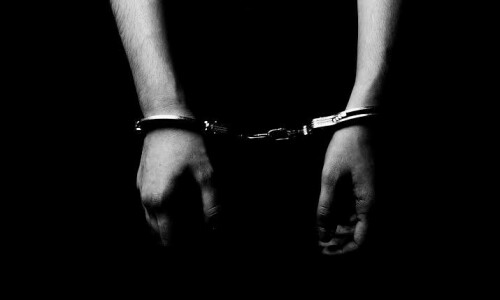Punjab Chief Minister Maryam Nawaz on Thursday stressed the need for police action against blasphemy suspects, but cautioned against the use of such allegations for “settling scores”.
Mob lynchings are relatively frequent in Pakistan, and even an unproven allegation of blasphemy can spark violence. Last month, the lower house of the Pakistani parliament passed a resolution condemning the recent incidents of mob violence in various parts of the country, including the lynching of a Swat man for allegedly desecrating the holy Quran.
Speaking at a conference in Lahore organised for the Ittehad Bainul Muslimeen — a body formed by the Punjab government for maintaining religious harmony, brotherhood and tolerance — Maryam spoke about the misuse of blasphemy-related allegations.
“A lot of times, these allegations are used to settle scores,” Maryam said. “If a mob gathers and takes the law into its own hands without determining who did what, then no one would be spared.”
In her speech today, Maryam noted there was a significant increase in incidents of alleged desecration of the holy Quran, stressing the need to figure out their cause.
The chief minister then highlighted the importance of speedy police action to determine the veracity of such allegations as well as sentencing if someone was found guilty.
“No matter what happens, we must not allow [anyone] to take the law into their hands, set up courts in their streets and areas, and issue sentences and fatwas,” Maryam asserted.
The chief minister emphasised the need for the authorities to come together to ascertain how to tackle the issue of rising complaints of desecration.
She noted that without determining the facts after such an allegation is made, “announcements are made and in few moments — before the police even arrive — people gather on the streets and arson, vandalism, [and] violence start there”.
Underscoring the need for police action to take its course, she noted that the Christian family was saved from a mob in Sardogha in May, preventing “loss of life as it did in Jaranwala“ riots.
The Christian man injured by the mob succumbed to his wounds days later.
CM Maryam also stressed the need for police action and denounced turning crimes into religious issues.
She said that once someone’s crime was proven, the person was “no longer a Muslim, Sikh, Hindu or a Christian but a criminal and they should be punished for their act”.
She then cited the example of an incident where a religious leader’s crime of raping a minor was proven but the matter was “turned into a religious issue when the police arrested him” and numerous “fatwas were issued” against her on social media.
“The biggest criminal is the one who is the cause of defaming a religion and leaving a mark on it,” Maryam said.
The chief minister also highlighted that more than 50,000 social media accounts and pages had been blocked, later referring to statements made by a particular person against girls’ education. She stressed that someone issuing statements against the teachings of Islam was a crime in itself.
During her speech, the PML-N leader also recalled how her party’s leaders were targeted and faced allegations “to settle political scores in 2017-2018”.
She lamented it was a “very painful process” to face “such allegations from a few people and a political party” at the time when her father, Nawaz Sharif, had been disqualified as the prime minister.
Maryam referred to an assassination attempt on Planning Minister Ahsan Iqbal in 2018, where he was shot by a supporter of the religio-political party Tehreek-i-Labbaik Pakistan.
“He (Iqbal) belongs to a very religious family. […] He was also shot [but thankfully] God saved his life.”
Fuelled by an extremist religious worldview, violence against non-Muslims in Pakistan has escalated rapidly ever since former military dictator General Ziaul Haq made blasphemy punishable by death.
Between 1927 and 1986, only 14 incidents of blasphemy were reported in what is now Pakistan. But after the changes were made in the law, the number surged quickly. At least 2,120 persons are reported to have been accused of committing blasphemy between 1987 and 2022.
















































Dear visitor, the comments section is undergoing an overhaul and will return soon.